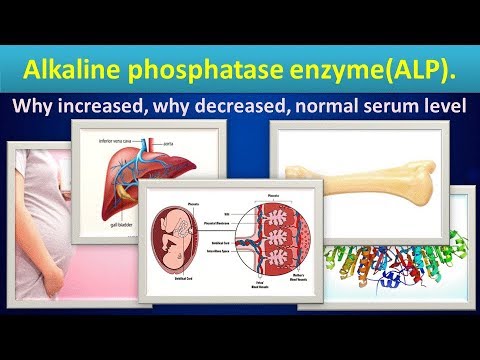Alkaline Phosphatase ALP is a blood test that measures the amount of Alkaline Phosphatase in the blood that comes from your liver and bone. Alkaline Phosphatase is one kind of enzyme that is found throughout your body. Enzymes are protein that helps chemical reactions happen.
Zinc and magnesium are important co-factors of Alkaline Phosphatase enzymes. An abnormal level of ALP may cause Bone disorder, liver disease, and chronic kidney diseases.
Is This Test Have Other Name
Alkaline Phosphatase, ALP, ALK, ALKP.
How The Test Performed
A blood sample Needed.
Why The Test Performed
If you have symptoms of liver diseases or bone disorders your doctor advised an Alkaline Phosphatase test to measure the amount of ALP in your blood to diagnose the problems. There are two main types of Alkaline Phosphatase, a general ALP test and isoenzyme ALP.
Whereas an ALP test just measures the level of ALP in your blood, an ALP isoenzyme test can differentiate between types of alkaline phosphatase based on where they originated in your body.

Why do I Need an Alkaline Phosphatase ALP Test:
If your liver is not working right the amount of ALP in your blood may be high. An Alkaline Phosphatase test may also ordered if you have symptoms of bone disorder or liver damage. Symptoms of liver disease are
- Hepatitis
- Cirrhosis
- Fatigue
- Weakness
- Jaundice
- Abdominal Pain
- Nausea
- Swelling in your arm
- Lack of appetite
- Dark color urine
- Swelling in your leg and ankle
- Liver Cancer
- Bone pain and or Joint Pain
- Vitamin D deficiency
What Does the Result Mean:
High Alkaline Phosphatase may be a sign of liver problems or bone disorders. Liver Problems and bone disorders cause different types of ALP. Be sure to let your doctor if you are pregnant that will your ALP level increase. Test results vary depending on your age gender, health history, and other things. For men and women older than age 18, an ALP level between 44 and 147 U/L is considered normal.
The normal range for children is higher than that for adults, especially for infants and teens because their bones are growing rapidly. ALP results are reported in units per litter (U/L).
High alkaline phosphatase levels in your liver may be a sign of:
Cirrhosis
Blockages in the bile ducts
Hepatitis
Mononucleosis, which can sometimes cause swelling in the liver
Moderately high levels of ALP
may be a sign of many different types of conditions, including Hodgkin lymphoma, heart failure, or certain infections.
It’s possible to have higher than normal levels of ALP and not have a medical condition that needs treatment. Your provider will consider your symptoms, medical history, and other test results to make a diagnosis.
Low levels of ALP are less common
They may be a sign of a lack of zinc, malnutrition, pernicious anemia, thyroid disease, Wilson disease, or hypophosphatasia, a rare genetic disease that affects bones and teeth



[…] in the sample and it forms potassium sodium cobalt. And it is measured photometrically. An alkaline solution of cobalt in the presence of an amino acid, for example, glycine, reduces its color and […]
[…] this method for serum creatinine, picric acid reacts chemically with creatinine in an alkaline solution, resulting in a yellowish-reddish solution. The absorbance of this dye is recorded on the […]